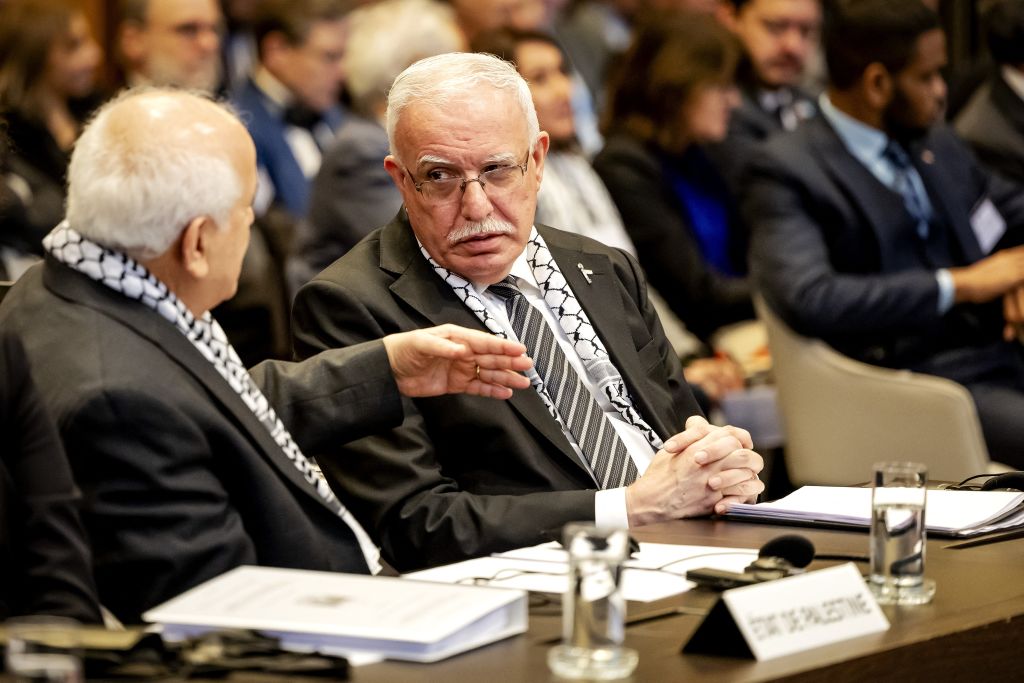
The International Court of Justice (ICJ) has begun hearings into the legality of Israel’s occupation of Palestinian territories since 1967. It marks the first time the world’s top court has been asked to give an opinion on the matter.
Hearings in the U.N.’s court began in The Hague on Monday and over the course of six days will see 52 states and three organizations—the Arab League, Organisation of Islamic Cooperation, and African Union—present their arguments related to Israel’s open-ended control over the occupied West Bank, Gaza, and annexed East Jerusalem.
The hearings predate Israel’s ongoing bombardment of Gaza but have become a focal point early in the proceedings.
“I stand before you as 2.3 million Palestinians in Gaza, half of them children, are besieged and bombed, killed and maimed, starved and displaced,” said Palestinian Foreign Minister Riyad al-Maliki on Monday. “As more than 3.5 million Palestinians in West Bank, including East Jerusalem, are subjected to colonization of their territory and the racist violence that enables it.”
Since the Oct. 7 Hamas attack that killed 1,200 people in Israel, Israel’s bombardment of the Gaza Strip has killed at least 29,000 Palestinians and displaced over 75% of its population.
The hearings are separate to South Africa’s genocide case brought against Israel on Dec. 29, which ruled on Jan. 26 that Israel must “take all measures within its power” to prevent acts of genocide and ensure aid reaches civilians in Gaza. It is the result of a 2022 resolution by the U.N. General Assembly that called on the ICJ to offer an advisory, or non-binding, opinion on the occupation.
Here’s what to know about the ongoing ICJ hearings.
How were the hearings brought to the ICJ?
The U.N. General Assembly passed a resolution in December 2022 with 87 states voting to seek the ICJ’s non-binding opinion on the legality of Israel’s occupation since 1967. Some 26 members—including Israel and the U.S.—voted against the resolution while 53 abstained.
It marks the second instance in which the U.N. General Assembly has sought the ICJ’s opinion on the occupied Palestinian territories. In 2004, the court stated that Israel’s separation wall erected in the West Bank was a violation of international law. While the court stated that the wall should be dismantled, it still stands today.
What are the ICJ hearings about?
The Palestinians began presenting their case across a three-hour period on Monday, calling for an end to Israel’s occupation of Palestinian territories. They are expected to argue that the occupation is illegal because it violates three key tenets of international law.
That includes the prohibition on territorial conquest by annexing large swaths of occupied land, the violation of the right to self-determination, and the imposition of a system of racial discrimination and “apartheid,” the Associated Press reported.
“They’ve had to consider the word genocide in the South Africa case,” Omar Awadallah, the head of the U.N. organizations department in the Palestinian Foreign Ministry, said on Sunday. “Now we want them to consider apartheid.”
How has Israel reacted to the proceedings?
Israel is not expected to speak in the hearings but has filed a written submission rejecting the validity of the proceedings. Prime Minister Benjamin Netayahu previously called the hearings “despicable” and “disgraceful.” Israel also strongly rejects the accusation of apartheid.
Yuval Shany, a law professor at Hebrew University, told the Associated Press that Israel will likely justify the occupation on security grounds.
But Palestinians and leading rights groups are expected to argue the occupation goes far beyond defensive measures.
When will an advisory opinion be reached?
Once the hearings conclude on Feb. 26, a panel of 15 judges will take months to deliberate before offering their non-binding opinion.
More Must-Reads from TIME
- Cybersecurity Experts Are Sounding the Alarm on DOGE
- Meet the 2025 Women of the Year
- The Harsh Truth About Disability Inclusion
- Why Do More Young Adults Have Cancer?
- Colman Domingo Leads With Radical Love
- How to Get Better at Doing Things Alone
- Michelle Zauner Stares Down the Darkness
Write to Armani Syed at armani.syed@time.com